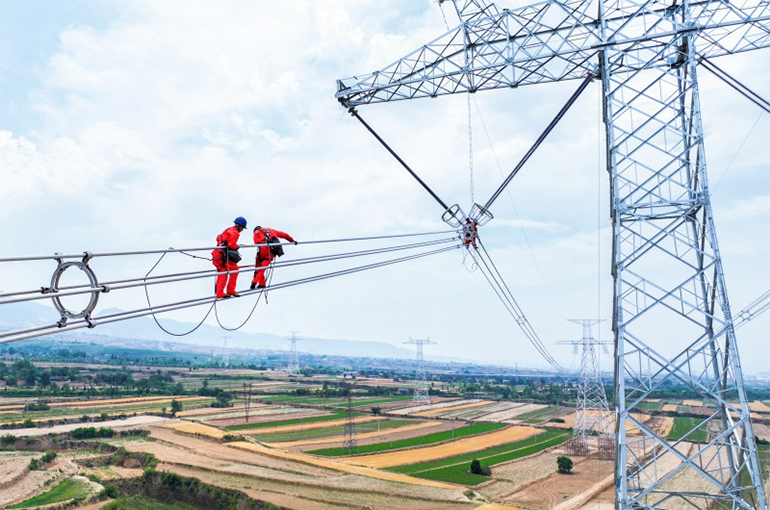 China’s Power Systems, Grid Need Building Faster to Absorb Renewables, State Grid Boss Says
China’s Power Systems, Grid Need Building Faster to Absorb Renewables, State Grid Boss Says(Yicai) June 18 -- China should speed up the construction of new power systems and the electricity grid to soak up surging installed renewables capacity, Zhang Zhigang, the chairman of State Grid wrote in an article published to mark the 10th anniversary of the country’s energy security strategy.
China, the global leader in solar energy, has seen its renewable energy sector boom, driven by a number of factors, including government strategies on reducing the nation’s carbon emissions and ensuring its energy security.
Annual electricity consumption has soared by more than 70 percent to 9.2 trillion kilowatt-hours over the past decade. The installed capacity of renewables now accounts for more than half of the total energy mix, exceeding the share of thermal power for the first time.
State Grid will work with government departments to deepen the marketization of electricity prices and to improve market mechanisms linked to new energy, distributed power supply systems, virtual power plants, and user-side energy storage, Zhang also said.
The chairmen of a number of other state-owned energy firms have also penned articles on energy security. Meng Zhenping, who chairs China Southern Power Grid, which covers the provinces of Guangdong, Guangxi, Yunnan, Guizhou, and Hainan, wrote that it will enhance the quality of backbone grids, resource allocation, safety, as well as the capacity to cope with extreme situations.
China Southern Power will develop distributed smart grids with adaptions to local conditions to guarantee the supply of urban and rural power distribution networks and comprehensive transmission capacity, Meng added.
Last year, the installed capacity of renewables in southern China soared 23 times to 130 million kilowatts, surpassing the capacity of coal-fired energy for the first time to become the biggest source of energy in the five southern provinces.
The large-scale introduction of renewable energy brings new risks to the secure and stable operation of power systems, so the value of coal as bottom-line guarantor as well as system regulator must be recognized, according to Liu Guoyue, chairman of China Energy Investment, the world’s largest coal producer.
China is still highly dependent on imports of crude oil and natural gas and the country needs to further diversify its energy supply, wrote Dai Houliang, chairman of China National Petroleum Corporation. CNPC is looking at novel fuels such as shale oil and gas as well as coal-derived fuels to improve output while consolidating the foundations of energy security, he said.
Editor: Emmi Laine